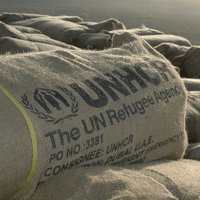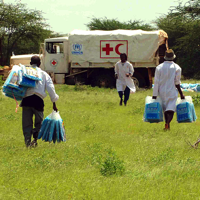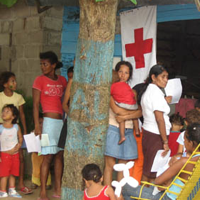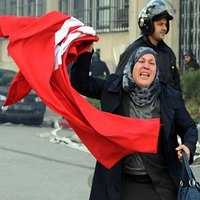One of the major points of speculation about the impact of the Egyptian uprising is over how a democratic government in Cairo will affect Egypt’s foreign policy, in particular regarding Israel. A just-released Ifop poll of French opinion on the Afghanistan War (via Jean-Dominique Merchet) highlights a point I’ve been meaning to make: Democracies are not immune to unpopular foreign policy. According to the Ipof poll, 72 percent of French people oppose the country’s involvement in the Afghanistan War. That’s slightly higher than the two-thirds who opposed the war at the time that French President Nicolas Sarkozy decided to deploy […]
Aid and Development Archive
Free Newsletter
The transformation currently unfolding in the Middle East could be as monumental as the changes in Europe that followed World War II and the disintegration of the Soviet Union. In both of those instances, the goals of the United States and its allies were transparent and consequential: to solidify Western power and establish a world order based on democracy and market economics. This successful model should be pursued once more by providing smart, dual-benefit assistance to all Middle Eastern nations seeking to build free and democratic societies. In the coming months, numerous governments in the Middle East will likely need […]

One of the most complex and difficult humanitarian problems confronting the international community today is that of protracted refugee situations. These are refugee situations that have moved beyond the emergency phase, but where solutions in the foreseeable future do not exist. Many of the refugees left behind in these situations have to live under terrible conditions, warehoused in camps or stuck in shanty towns, exposed to dangers, and with restrictions placed upon their rights and freedoms. I first became aware of the significance and dimensions of the contemporary problem of prolonged exile in 2001, after a brief visit to the […]

One need not venture far into the world of refugee assistance to encounter a maxim whose air of axiomatic truth can be a conversation-stopper, and whose terms, like sacred postulates of the refugee-response system, are rarely unpacked: The Office of the U.N. High Commissioner for Refugees (UNHCR) has the refugee-protection mandate. But several issues within that black box are worth illuminating. Namely, what does “refugee protection” mean? What is the nature of the “mandate”? And is it true that UNHCR is its unique possessor? While this might seem like a dry line of inquiry, like so much else these days, […]

Looking down from the hilltops of Bogotá’s southern rim, a sea of shingled rooftops and cinderblock huts stretches toward the horizon. These ever-expanding slums are home to tens of thousands of internally displaced persons (IDPs), Colombians who have fled their homes elsewhere in the country to escape the country’s long-running armed conflict. Here, Lady Carabali, a mother of five, lives in a damp, ramshackle home made from pieces of wood and scrap metal, with no running water or electricity. She was driven from her small farm on the Pacific coast by paramilitary violence more than a decade ago. Each day, […]

The massive, exhilarating protests in Egypt, Tunisia and Yemen mark a sea change for the better in the Arab world. But the implications of the uprisings for women in these countries have not yet been fully analyzed. All of the countries currently experiencing upheaval have made significant progress for women — progress that could be swept away very easily, as it was in Iran in 1979, never to be regained. Tunisia promulgated one of the most-enlightened personal-status codes for women in the Arab world in 1956, under Habib Bourguiba. Polygyny, the taking of multiple wives, was outlawed; men could no […]
